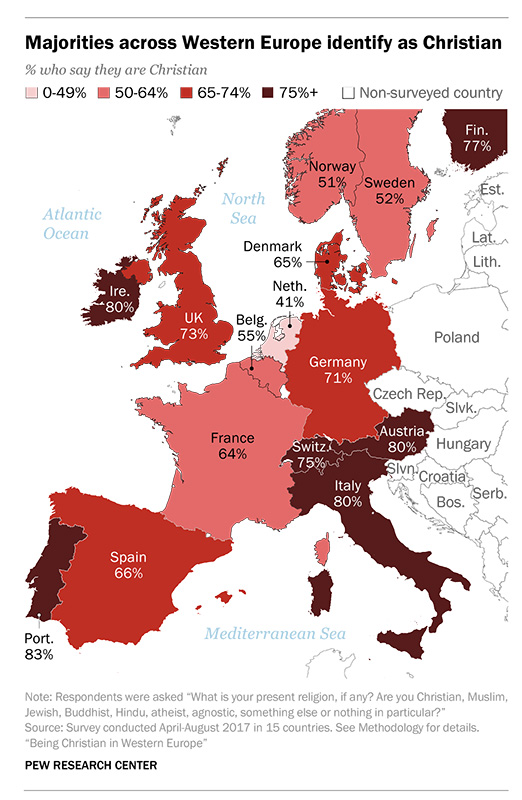Europe is not as secular as it seems -- well, at least its people do not think so. Survey says that more people think they are Christians than we thought. But what does this mean?
It means that the situation is not as simple as some think and much more complex below the surface of the numbers. Religious identity and practice are certainly both declining in Europe in measurable ways -- church attendance and beliefs among the top two markers. That said, this does NOT mean that those who don't attend or who have rejected some or even most of the doctrines of their church bodies, consider themselves unChristian. It proceeds even further. The increasing numbers of the so-called "nones" are not blank slates but have retained some of the religion of their families and the culture. It is not that they have no spiritual beliefs but a matter of how much of it is retained and what exactly has been incorporated into their identies and values. There is a murkiness and a profound complexity
hidden beneath any these figures.
In fact, that is the problem. They consider themselves Christian but this is a Christianity divorced from the practice of worshiping together and from the body of dogma that the Church has confessed through the ages. Yet the extent to which this is rejected varies among individuals and is not easily discerned by polling the populace. Believing in a higher power has come to mean the same as believing in the God of the creeds. Religious issues have come to be identified less as abortion and cohabitation and homosexuality and more as the hotbed political topics of immigration, national identity, and how to relate to the increasing numbers of Muslims in Europe. What this may signal is that Christianity is fading as a cultural marker and becoming more an ethnic marker. Those who claim to be Christian in Europe still do not say that religion plays an important role in their daily lives. Their claim has become more ethnic than one of an actual faith, supported by doctrine and reflected in piety and lifestyle. In fact, in the areas of values and life, those claiming to self-identity as Christians are not easily distinguishable from those who don't.
So what we are seeing is not simply that Christianity is fading away in Europe but that it is morphing into a more cultural and certainly ethnic identity and that dogma and piety are not essential to this identity. To put it bluntly, the very idea of what is Christianity is changing.

No comments:
Post a Comment